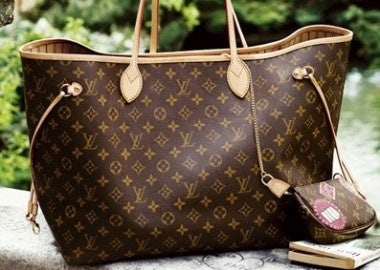Louis Vuitton Raises Prices In China, But Consumers Still Going Strong#

Though Chinese shoppers had a small window during which LV was a relative bargain, prices are up again (Image: LVMH)
Earlier this month, Jing Daily reported on the narrowing price gap for luxury goods in China vis-a-vis Europe, but high-end labels now seem to be raising prices across the board in China in response. Today, Sina relayed a story of a consumer in Shenyang who planned to buy the Louis Vuitton Neverfull PM once she received her paycheck, but found the price had risen to 5,750 RMB (US$875) from 5,350 RMB (US$814).
The Sina article quotes Louis Vuitton's China spokesman confirming that "this adjustment is based on Louis Vuitton's long-term pricing strategy, taking into account monetary inflation, rising raw material costs and other product factors." Additionally, Sina reports that other labels, such as Chanel, Dior, Burberry and Celine, will also increase prices this month by anywhere from five to 15 percent.
Some of the reasoning behind these price increases may come down to customs taxes, raw material costs and exchange rates, but the luxury industry has always followed different pricing standards, putting top priority on maintaining brand exclusivity. (Or at least a semblance of it.) The Sina article further attributes the rising prices in China to the costs of international operations, particularly for Louis Vuitton, who controls all aspects of the production chain, from manufacturers to retailers. However, as Jing Daily previously reported, the prices for Louis Vuitton's handbags gone up globally.
Interestingly, Sina sent reporters out to conduct a street survey based on the Louis Vuitton price increases. Of 100 people surveyed, 49 percent of the respondents said they could not accept the price increases, 32 percent could, and 19 percent said that they did not care. The article also quoted a consumer saying that,"we know there are plenty of fake Louis Vuittons [in China], but it makes me want to buy a real one even more, because being to be found out [to be carrying a fake] would be embarrassing."
Another consumer said, "if [Louis Vuitton] didn't raise prices, they wouldn't highlight the power of their products, and if they didn't raise prices, I wouldn't buy from them." This seems to reflect the sentiments of many consumers surveyed by Sina, as year-on-year price increases for luxury goods have become something of an accepted rule. The FT Beyondbrics blog reports today that China's consumers are still going strong, with the consumer confidence index compiled by UnionPay, China's domestic credit card service, rising to 86.54 points in February, its highest point since September 2010. According to UnionPay, over 75 percent of urban middle class consumers plan to increase spending on non-essential items in the next six months, and many "are turning to credit to defend against rising inflation."
According to the Beyondbrics article, credit cards are most popular among those between 25 and 35 of age with annual household incomes over 100,000 RMB ($15,210 USD) and monthly expenditures averaging between 1,000-3,000 yuan ($152-$456 USD). Bank card credit lending rose 132 percent year-over-year in 2010, due in part to the 44 million newly issued credit cards. In response to these spending trends, the Industrial and Commercial Bank of China plans to boost its personal consumer loan business over the next five years. Personal consumer loans currently make up about 25 percent of the bank's total lending, but with consumers looking to purchase more luxury goods, the banks' increased efforts to reach them, and large-scale lending slowing in reaction to China's speculative property market, this percentage is expected to increase significantly.